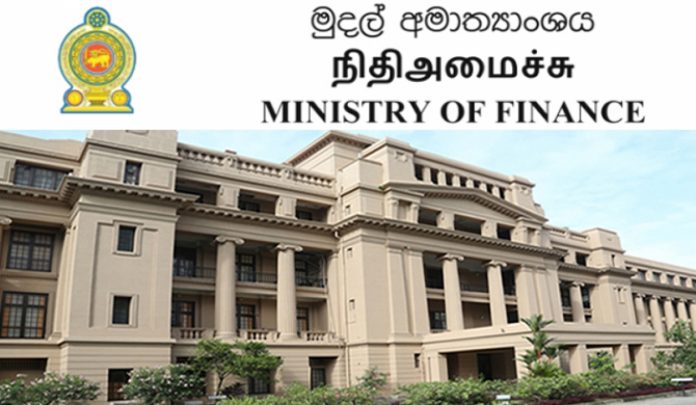The Treasury refuted the yesterday rating action of ‘CCC’ by Fitch Ratings saying it fails to recognize the robust policy framework of the new Government for addressing the legacy issues, including the concerns raised by Fitch Ratings, and ensuring ongoing economic recovery and macroeconomic stability of the Country.
“We observe, with disappointment, today’s rating action by Fitch Ratings expressing concerns about Sri Lanka’s external debt repayment capacity over the medium-term, financing options and debt sustainability risks, at a time when the newly appointed Government has just announced its medium term policy framework in its Budget 2020,” a statement from Treasury said.
It also noted that it is “surprising to note that Fitch Ratings’ assessment has ignored several key proposals presented in the Government Budget 2021 with regard to deficit financing in the period ahead”.
As indicated in the Budget 2021, the Government has adopted a novel approach in relation to foreign financing while enhancing the effectiveness of already secured financing channels, aimed at reducing the share of foreign financing of the budget deficit over the medium term. Yet, Fitch Ratings builds up its argument based on the ‘existing financing model’, thus adopting a backward looking approach.
In contrast, the forward looking financing model of the Government, which is skewed heavily towards domestic financing and will capitalize on the benefits of increased domestic savings and the low interest rate regime already in place given subdued aggregate demand conditions and well anchored inflation expectations. It is also noteworthy that the low interest rate regime will improve economic growth prospects in the period ahead, alongside the incentives being offered for capital investment, thereby supporting the envisaged debt consolidation efforts significantly, according to the statement.
As the relative share of outstanding foreign debt has already fallen to 44 per cent as per the latest available data, projecting a rise in foreign debt servicing obligations in the period ahead cannot be corroborated with facts. Based on such unfounded assumptions, Fitch Ratings project a government debt to GDP ratio of 100 per cent at end 2020 and 116 per cent at end 2024, while grossly overestimating the budget deficit at around 11.5 per cent of GDP in 2021 and 2022. The rating action announced today is based on these ill-informed model projections, without any evidence-based and objective analysis. Further, as the share of domestic government debt rises in a low interest rate regime, some increase in overall public debt to GDP in the near term is not considered as a significant concern.
Furthermore, with the strong pro-growth policy orientation of the Government as clearly articulated in the Budget 2021, a possible rise in local currency denominated government debt in the near term can be effectively managed within the envisaged fiscal consolidation path in the medium term, as government revenue increases helped by the envisaged take-off of the economy. It is also unrealistic to assume that the Government will take a rigid expenditure path, if by any chance, the expected improvement in revenue does not materialize.
Sri Lanka, similar to many of its peers in the emerging market group, experienced initial capital outflows, exchange rate depreciation, slowdown in activity, and pressure on government finances, in response to the effects of the first wave of the COVID-19 pandemic. However, Sri Lanka recognized its priorities early, and swiftly introduced a policy package to withstand and mitigate potential adverse effects of slowing economic activity, while building buffers for countering possible external financing challenges.
With the decisive conclusion of the Parliamentary election in August 2020, the Government of Sri Lanka is now moving along a recovery path towards growth and stability even in the midst of the transitory disruptions caused by the second wave of the pandemic. The Sri Lankan economy is expected to have recovered strongly during the third quarter of 2020, when the second wave hit economic activity.
Earlier than expected return of merchandise exports to pre-COVID monthly averages of US dollars 1 billion and the curtailment of non essential imports have reduced the trade deficit notably for the sixth consecutive month in October 2020, saving US dollars 3.3 billion in import expenditure so far during the year.
Meanwhile, larger than expected increase in workers’ remittances, together with other services exports, including IT services and shipping, helped mitigate the impact of the pandemic. Improvements in trade balance and workers’ remittances have helped cushion the current account deficit to a large extent in spite of the downturn in tourism, thereby reducing pressure on the exchange rate and official reserves.

















